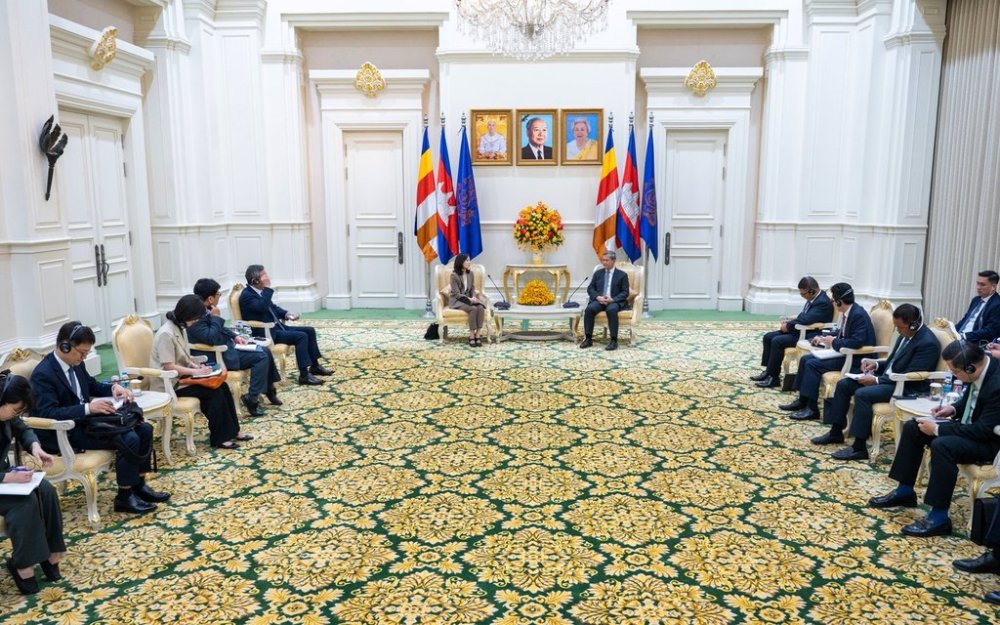World
South Koreans to be Repatriated After Alleged Scams in Cambodia

Dozens of South Koreans, allegedly involved in online scams operating out of Cambodia, are set to be repatriated on a charter flight scheduled for March 15, 2024. This decision follows the tragic death of a South Korean student, reportedly coerced into working at a scam center in Cambodia, which sparked significant public outrage in South Korea.
According to South Korean national security director Wi Sung-lac, final negotiations are underway to facilitate the return of approximately 60 individuals. The charter flight is expected to depart from Phnom Penh around midnight local time (17:00 GMT). Upon their return, these individuals will be subjected to investigations to determine whether they participated in the scams willingly or were victims of coercion through misleading job advertisements.
Background of the Scam Centers
Scam centers in Cambodia are believed to employ around 200,000 workers, including an estimated 1,000 South Koreans. The rise in online scams has accelerated since the COVID-19 pandemic, leading to two distinct groups of victims: those forced to work in scams under threat of violence and those who fall prey to fraudulent schemes involving bogus investments, illegal gambling, and deceptive romantic pursuits.
International monitoring groups highlight that these online scams generate billions of dollars annually for organized criminal gangs. The South Korean government has responded to this growing crisis by implementing travel restrictions in parts of Cambodia, including Bokor Mountain, where the deceased student was discovered.
In light of the recent events, Cambodian Prime Minister Hun Manet has requested the easing of travel restrictions, as reported by South Korea’s Foreign Ministry. Meanwhile, South Korean President Lee Jae Myung has ordered urgent actions to eliminate illegal job advertisements, not only in Cambodia but throughout Southeast Asia.
Broader Implications and Trends
Historically, online scam operations have been concentrated in Southeast Asian nations such as Cambodia and Myanmar, with many workers trafficked from within Asia. However, a recent report from Interpol indicates a troubling trend in which victims are now being trafficked from distant regions including South America, Western Europe, and Eastern Africa. New scam centers have also emerged in the Middle East, West Africa, and Central America, complicating the global effort to combat this issue.
The repatriation of the South Koreans marks a significant step in addressing the broader implications of online scams and human trafficking, as governments face increasing pressure to protect their citizens from such predatory practices. As investigations proceed, the focus remains on understanding the extent of coercion involved and ensuring justice for all affected individuals.
-

 Science2 months ago
Science2 months agoToyoake City Proposes Daily Two-Hour Smartphone Use Limit
-

 Health2 months ago
Health2 months agoB.C. Review Reveals Urgent Need for Rare-Disease Drug Reforms
-

 Top Stories2 months ago
Top Stories2 months agoPedestrian Fatally Injured in Esquimalt Collision on August 14
-

 Technology2 months ago
Technology2 months agoDark Adventure Game “Bye Sweet Carole” Set for October Release
-

 World2 months ago
World2 months agoJimmy Lai’s Defense Challenges Charges Under National Security Law
-

 Technology2 months ago
Technology2 months agoKonami Revives Iconic Metal Gear Solid Delta Ahead of Release
-

 Technology2 months ago
Technology2 months agoSnapmaker U1 Color 3D Printer Redefines Speed and Sustainability
-

 Technology2 months ago
Technology2 months agoSolve Today’s Wordle Challenge: Hints and Answer for August 19
-

 Technology2 months ago
Technology2 months agoAION Folding Knife: Redefining EDC Design with Premium Materials
-

 Business2 months ago
Business2 months agoGordon Murray Automotive Unveils S1 LM and Le Mans GTR at Monterey
-

 Lifestyle2 months ago
Lifestyle2 months agoVictoria’s Pop-Up Shop Shines Light on B.C.’s Wolf Cull
-

 Technology2 months ago
Technology2 months agoApple Expands Self-Service Repair Program to Canada









